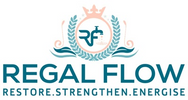
Reverse Osmosis vs Alkaline Water: What Should You Drink?
Tired of your tap water tasting like a swimming pool? Reverse osmosis is the gold standard for purity. You can find the A-Z of how these systems work in our Reverse Osmosis: The Ultimate Guide to Water Purification, but keep reading here to discover if you should choose a pure RO system or an alkaline remineraliser for your kitchen.
Reverse Osmosis Water
Picture this: you fill a glass straight from the tap, expecting a refreshing drink—but all you get is a strange taste and the faint smell of swimming pool. Sound familiar? That’s exactly why more UK households are turning to reverse osmosis (RO) systems. It's not just science fiction—it's smart science working hard in your kitchen. So, what makes RO water so special? And why are so many families swapping out their jugs and filters for these high-tech units? Let’s take a peek behind the curtain.
Purification Process
Reverse osmosis is all about pressure and precision. In simple terms, your tap water is pushed through a super-fine membrane—tiny enough to block nasties like chlorine, lead, fluoride, and even microscopic bacteria. The result? Up to 99% of contaminants removed. That means no weird tastes, no floaty bits, and definitely no guessing what’s in your glass. Some RO systems even go the extra mile by adding healthy minerals back in at the end, giving the water a smooth taste while keeping it pure.
Health Implications
Now, here’s the twist—clean water isn’t always the same as nutritious water. Because RO is so thorough, it also filters out natural minerals like calcium and magnesium. These are things our bodies actually need. But don’t panic. Many newer RO systems now include a remineralisation stage, which puts the good stuff back without reintroducing anything harmful. So, if you live in an area with less-than-lovely tap water, RO could still be your best bet especially if health and safety are top of your list.
Alkaline Water Overview
Now let’s talk about alkaline water, the one with all the buzz. You have probably seen it in health shops or heard someone at the gym singing its praises. It's often marketed as a wellness miracle in a bottle. But is it worth the hype, or just another trendy sip?
Production Methods
Alkaline water gets its high pH level either through electrolysis or by adding minerals directly to the water. If you’re using an alkaline ioniser, it works by splitting tap water into two streams: one alkaline (for drinking) and one acidic (often used for cleaning). Some brands take the simpler route just boost the pH with minerals like calcium or potassium, no wires involved. Either way, the end goal is the same: raise the water’s pH and (hopefully) boost its health value.
Claimed Health Benefits
Fans of alkaline water say it does everything from neutralising body acidity to supercharging hydration. There’s even talk about anti-ageing effects and better digestion—big claims for something that still comes out of your tap. But here’s the thing: while a few small studies suggest it may help with acid reflux, there’s no strong scientific backing for most of the other claims. And according to the NHS, your body is already brilliant at managing its own pH levels—no fancy water required.
Comparative Discussion
So which system is actually better? Let’s break it down.
Scientific Evidence
RO water has science on its side. It’s been tested, reviewed, and trusted for decades. It meets strict UK water safety standards and removes a wide range of contaminants. We are talking about real results; not marketing fluff. Alkaline water, while popular, doesn’t have the same scientific grounding. The research is patchy, and most health claims are still waiting for solid proof.
Suitability for Daily Consumption
Both are fine to drink every day, but their strengths are very different. RO water is ideal if you live in an area with poor water quality. If your pipes are ancient or your tap water smells like a swimming pool, this is the fix. Just make sure the system you choose puts those minerals back in or get them from your diet. Alkaline water is more of a lifestyle choice. It's safe to drink but shouldn’t replace a balanced diet or a proper health plan. Think of it as the green juice of the water world—nice, but not essential.
Conclusion: Making an Informed Decision
So, what’s the verdict on reverse osmosis vs alkaline water? Short answer? If you’re after clean, contaminant-free water backed by science—go with reverse osmosis. It’s the heavy-duty option that gives you peace of mind, especially in areas with questionable tap quality. But if you’re curious about alkaline water and just want something different, there’s no harm in giving it a try. Just don’t expect it to be a miracle cure. Start by testing your water at home. If it’s high in chlorine, metals, or anything grim—RO is a smart investment. If your water’s already decent, an alkaline filter might just add a bit of sparkle to your hydration routine. Whichever route you take, one thing’s for sure: better water starts with understanding what you’re drinking. And once you taste the difference, you’ll never go back to “straight from the tap” again.
More Reverse Osmosis info we think you'll love
Reverse Osmosis Advantages and Disadvantages
Reverse Osmosis in Wastewater Treatment
Reverse Osmosis vs Bottled Water
Reverse Osmosis vs Water Softener
Can Reverse Osmosis Remove Fluoride?
Is Reverse Osmosis Water Safe to Drink?


Leave a comment